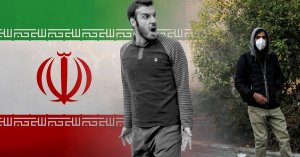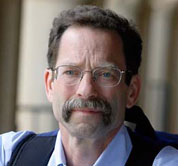 The following is an excerpt from an interview with me and my collaborator Nader Hashemi that will be published soon by the excellent online magazine Qantara.de. The interviewer is Emran Feroz, a journalist based in Germany, founder of the Drone Memorial, a virtual memorial for civilian drone strike victims, and author of a book on drone warfare. The interview revolves around our recent book Sectarianization: Mapping the New Politics of the Middle East, in which we challenge the new conventional wisdom in Western media and policy circles that attributes the violence engulfing the Middle East today to “ancient hatreds”. We call this sectarian essentialism a new form of Orientalism. In this section of the interview we’re responding to a question about the pervasiveness of this sectarian narrative across the ideological spectrum.
The following is an excerpt from an interview with me and my collaborator Nader Hashemi that will be published soon by the excellent online magazine Qantara.de. The interviewer is Emran Feroz, a journalist based in Germany, founder of the Drone Memorial, a virtual memorial for civilian drone strike victims, and author of a book on drone warfare. The interview revolves around our recent book Sectarianization: Mapping the New Politics of the Middle East, in which we challenge the new conventional wisdom in Western media and policy circles that attributes the violence engulfing the Middle East today to “ancient hatreds”. We call this sectarian essentialism a new form of Orientalism. In this section of the interview we’re responding to a question about the pervasiveness of this sectarian narrative across the ideological spectrum.
<><><><><><><><>
Versions of the sectarian narrative can be found on the right, in the center, and on the left. The New York Times columnist and establishment sage Thomas Friedman, for instance, claims that in Yemen today “the main issue is the 7th century struggle over who is the rightful heir to the Prophet Muhammad — Shiites or Sunnis”. Barack Obama asserted that the issues plaguing the Middle East today are “rooted in conflicts that date back millennia”. A more vulgar version of this view prevails among right-wing commentators. The former cable television host Bill O’Reilly has remarked that “the Sunni and Shia want to kill each other. They want to blow each other up. They want to torture each other. They have fun. … This is what Allah tells them to do, and that’s what they do”.
This is hardly surprising, given the anti-Muslim prejudice so pervasive on the right. What is surprising is to find people on the left trafficking in the sectarian narrative. Take the case of Patrick Cockburn, the influential Middle East reporter for The Independent. Cockburn has consistently framed the Syrian conflict in sectarian terms — using language like “sectarian blood-letting” and “demons” — and even criticized others for downplaying sectarianism. He did this from very early on, seeing sectarianism as immanent even during the nonviolent popular demonstrations of 2011, which were notably devoid of sectarian slogans and involved Syrians of multiple religious backgrounds/identities. The Syrian conflict became sectarian, but it didn’t start that way and, contra Cockburn, its sectarianization was by no means inevitable. In his chapter in our book, the anthropologist Paulo Gabriel Hilu Pinto demonstrates how the Assad regime pursued a deliberate strategy of sectarianizing the conflict through the use of sectarian pro-regime militias and the “selective distribution of violence” to punish specific sub-groups of protesters; and by releasing various jihadis from Syria’s prisons, to poison the well and produce a “preferred enemy”. Continue reading “Left-Wing Orientalism: The Curious Case of Patrick Cockburn”
 Toxic effusions and formulaic pronouncements abound in response to the protests in Iran, from the
Toxic effusions and formulaic pronouncements abound in response to the protests in Iran, from the 
